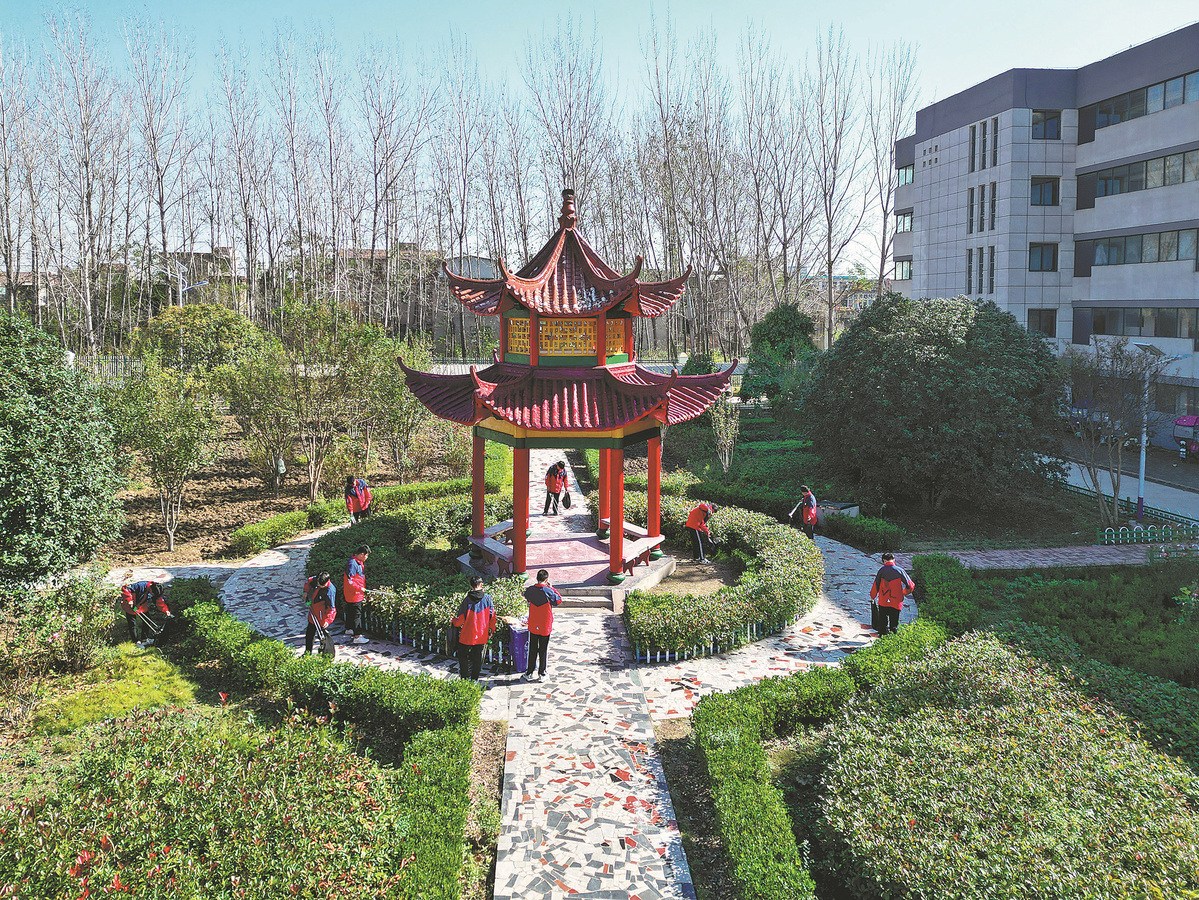School gardens may spark children's interest in nature
China Daily | Updated: 2024-02-26 10:15

KUNMING — It is widely known that children's interest in nature is crucial for their mental health and biodiversity conservation efforts.
But how can parents and teachers foster children's interest in nature in the first place? The answer may lie in a garden.
Chinese researchers have recently revealed that a school garden with abundant natural components can be used to cultivate the interest of primary school children in nature while helping to alleviate their study-related stress.
In a study published in the journal People and Nature, a research team from Xishuangbanna Tropical Botanical Garden of the Chinese Academy of Sciences analyzed the impact of natural observation and inquiry-based learning activities in a school garden on the development of children's interest in nature.
The researchers conducted a series of teaching interventions over a semester in a campus garden of a primary school in Xishuangbanna, Yunnan province. The program involved 24 fourth graders taking part in three 40-minute activities that were held weekly: natural observation with assigned tasks, natural observation with open-ended tasks and inquiry-based activities.
Participants maintained individual portfolios consisting of questionnaires, nature journals, observation descriptions and interviews. Qualitative and quantitative data were analyzed to categorize children into three categories: those who developed an interest, those who developed an enhanced interest, and those not affected by the activities.
After four months in the program, the results showed that more than two-thirds of the 24 students were classified as either "interest initiated" or "interest enhanced," indicating a generally favorable outcome, according to the study.
The results revealed that the school garden, with its unique and safe environment, played a significant role in stimulating children's curiosity about the creatures in the garden. It also empowered children to learn and explore independently.
Given the current trend of children spending more time in front of screens and less in front of nature, school gardens offer potential solutions, the study said.
"Implementing a diverse school garden with informative labels and explanation boards, along with teacher support, represents a promising approach to cultivating children's interest in nature, particularly during the critical developmental stage of 9 to 11 years of age," said Chen Jin, a researcher at the Xishuangbanna Tropical Botanical Garden.
"We recommend implementing mini botanical gardens and club activities in schools to bridge formal and informal education," Chen added.
Xinhua
























